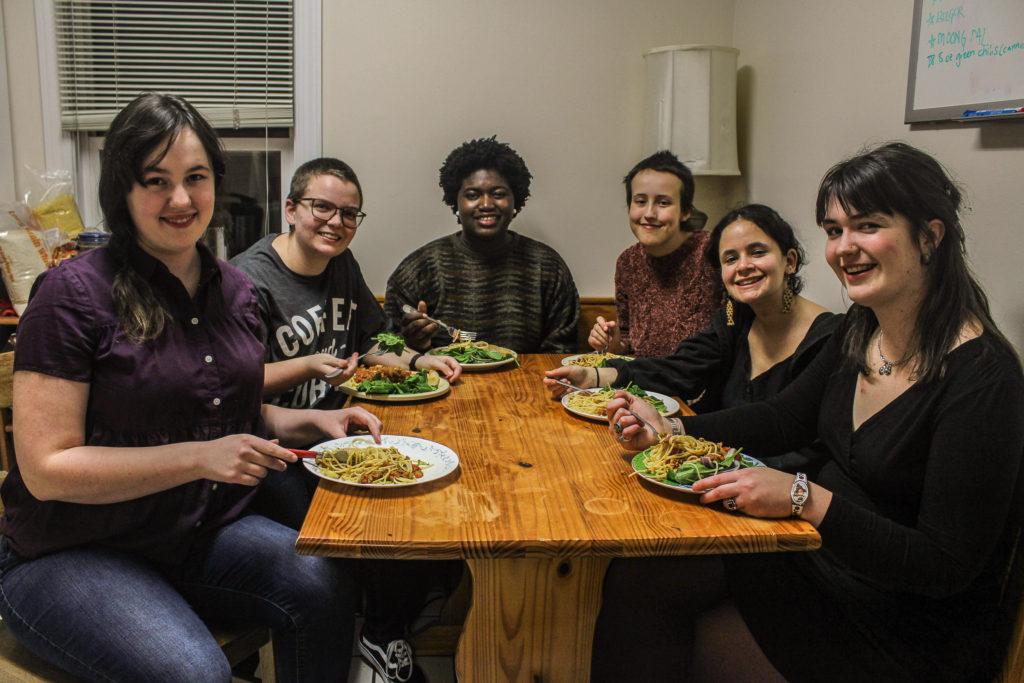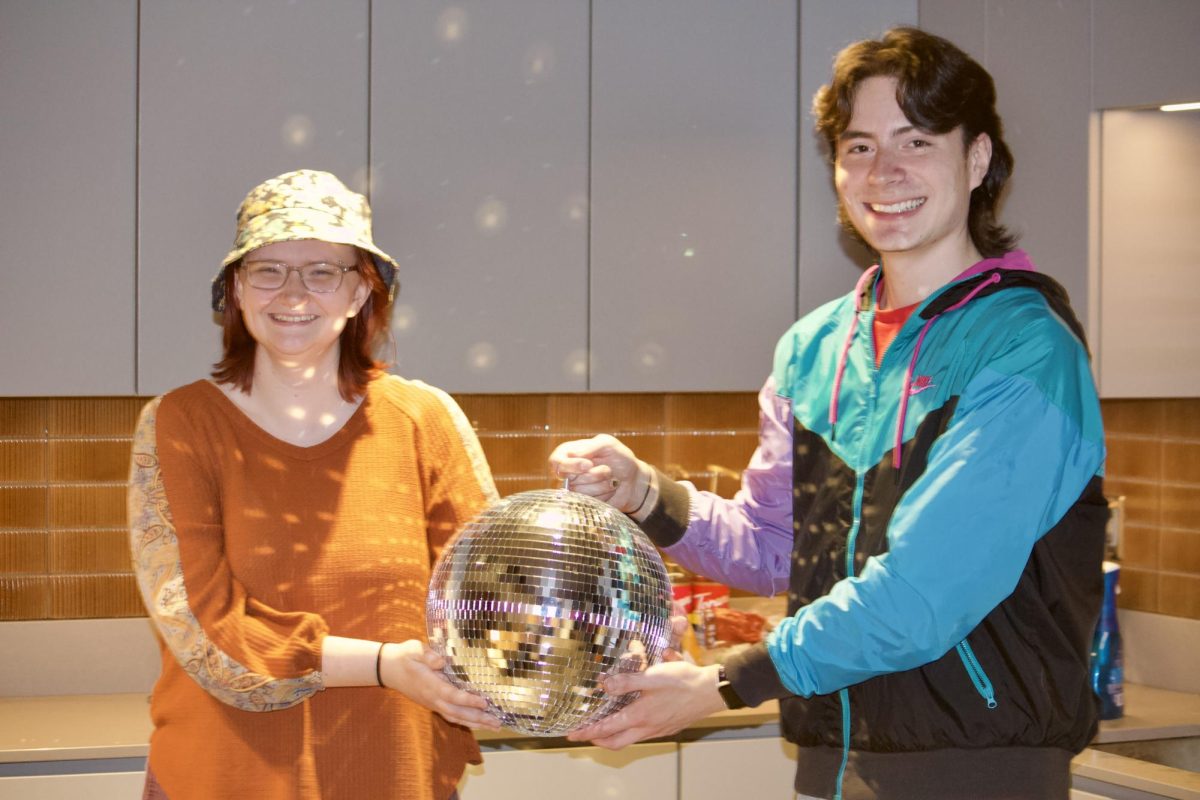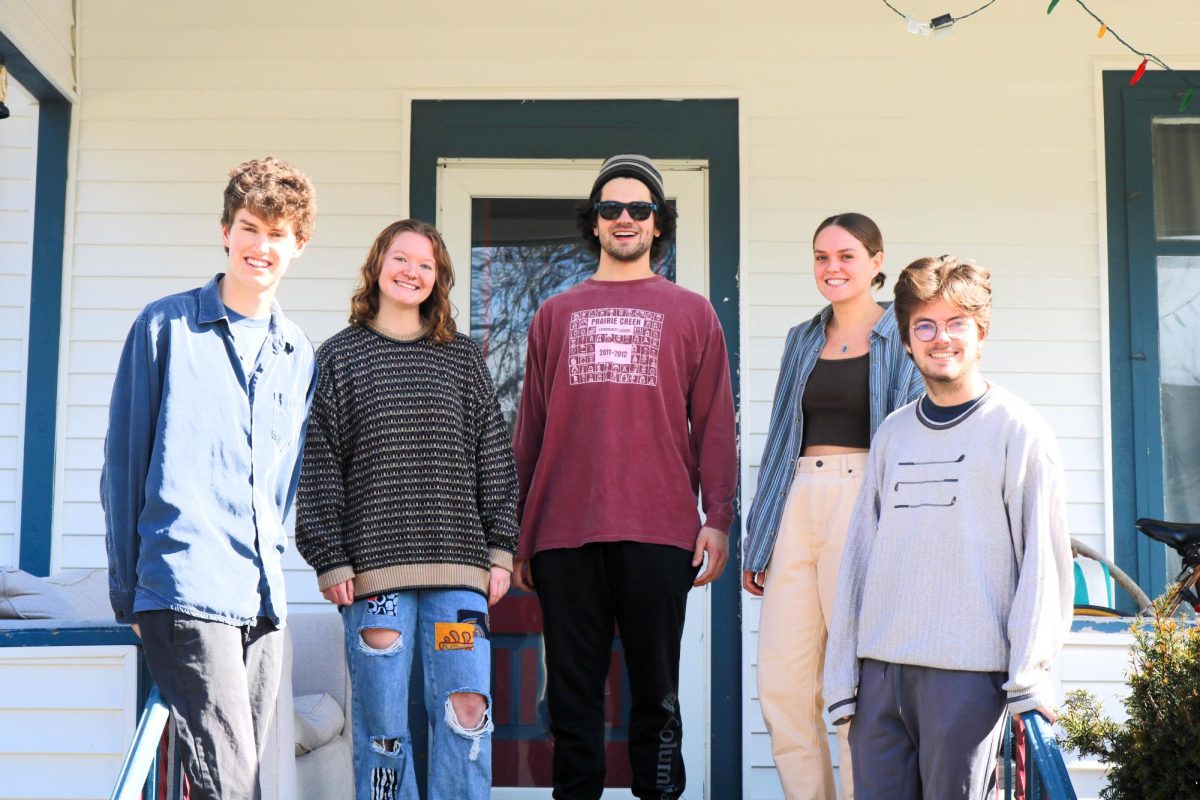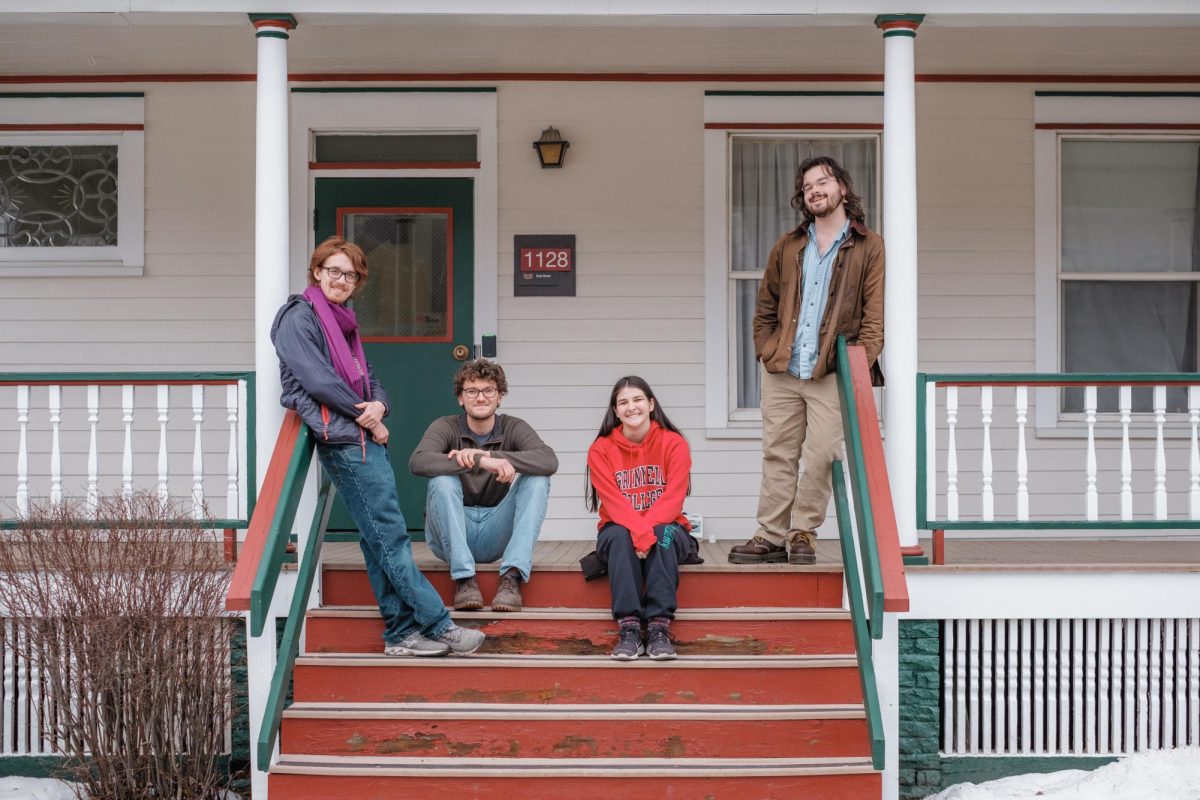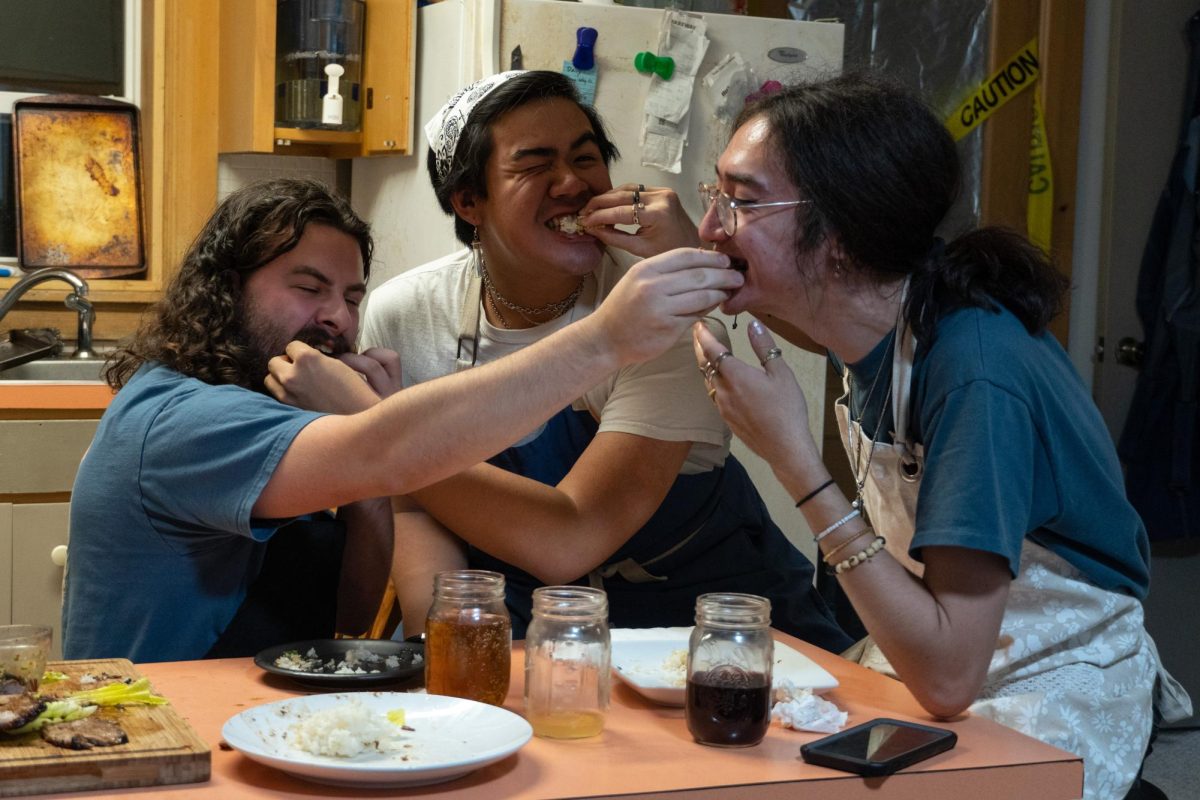Guests at 1008 Park St. on Monday night were greeted by the smell of lime, cilantro and a feeling of welcome. The kitchen bustled with activity as guest chef Arturo Hernandez-Ramirez ’22 and house coordinator Chloe Wray ’21 prepared vegan heart-of-palm ceviche. Close by in the living room, laughter filled the air as Food House residents and guests arrived for the meal of the night. Soon, all were presented with an immaculately prepared dish — according to Arturo, his “plating inspiration” was a bird of paradise.
Monday’s dinner may have seemed like a special occasion, but according to Rachel Eber ’21 “Practically every night in Food House is an event.” In fact, Food House serves four home-cooked, vegetarian meals (always with a vegan option) a week and caters to other dietary restrictions.
House residents are Chloe Wray ’21, Rachel Eber ’21, Obuchi Adikema ’21, Gaen McCan ’22, Caroline Shea ‘22, Abigail Munsen ’22 and Summer Bordon ’22.
The daunting prospect of cooking a meal for up to fourteen people (7 house members and 7 guests) does not seem to faze the chefs of Food House. With the newly instituted guest chef program, there are at least two people to cook a meal Monday through Thursday.
“But it’s been great to have people who love to cook and who wouldn’t be able to cook otherwise … come over and oftentimes come up with the recipe themselves. We’ve really made it accessible for people to come cook with us which we weren’t really good at before, now it’s open to whoever,” said Wray.
Guest program aside, Food House residents don’t see cooking as a task, rather, they find joy and meaning in their weekly ritual.
“Food House adds a lot of meaning to my life and I get really excited when I think of something I want to make and the prospect of sharing it with a lot of people,” said Eber. “It makes my quality of life very full.”
It is no surprise, however, that residents say the most important part of Food House is the sense of community it cultivates. Caroline Shea ’22’s favorite part of Food House is that residents “really get to know each other because we cook together, and we eat together.”
Similarly, Obuchi Adikema ’21 finds that “We’re always so supportive of each other, we’re always talking, and lounging in the living room working on homework.”
Valuing community also means engaging the greater student body.
“We are trying to develop a community among house members but also with guests who come to eat with us. Food house aims to provide a sort of outlet for people and a grounding force as a house and home,” said Wray. “I was thinking today how cool is it that I don’t know who is going to be eating with me when I get home tonight, but I’ll get to talk to them and hear about their day and that’s not something that you always get later on in your years at Grinnell — it’s great to have an easy way to meet new people on a regular basis.”
Sitting around the living room, it was hard to distinguish the house members from the guests. There was a feeling of familial welcome – everyone seemed comfortable enough to crack jokes in between bites of ceviche.
Guest chef Arturo said, “I love cooking for other people because cooking for yourself is kind of sad,” which warranted laughter from around the room.
For guests Hasan Ali ’21 and Bojana Crnomarkovic ’20, aside from the impeccable company, the convenience of a home-cooked meal at the price of four dollars is too appealing to pass up.
Aside from the food and conversation, another key part of the Food House community is working together to make individual and collective goals come to fruition. For example, Food House was the worthy winner of the last Stew Fest — a local fundraiser for the Grinnell Area Arts Council in which each contestant attempts to make the best stew.
Another collaborative event coming up this Saturday is Food House’s first Mardi Gras celebration, organized by Adikema. The event will be from 7 to 10 p.m. and will feature traditional southern food such as jambalaya, red rice, collard greens and king cake, all for free.
Mardi Gras, translated as “Fat Tuesday,” is a time of celebration before Ash Wednesday in which communities come together to bond,n eat rich and fatty foods and have a good time. Adikema, who is originally from Baton Rouge, Louisiana, was inspired by her own experiences with the celebration and was encouraged by the previous community outreach of Food House to organize the all-campus event.
“I thought, what better place to invite people into our home to celebrate Mardi Gras, because Mardi Gras is alln about being surrounded by community. Food House is the perfect place to have that bonding event centered around food.”
To Adikema, the Mardi Gras event is one way of capitalizing the supportive and innovative community of Food House.
“We are so intent on making food house mean something to us.” she said.

















































